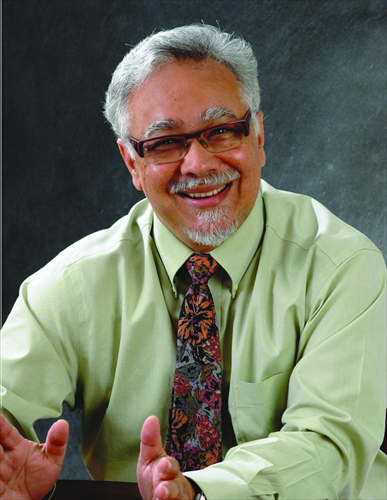ASEAN bonds continue to strengthen region

Prasenjit Duara
Editor's Note:The 2014 ASEAN summit concluded in Nay Pyi Taw recently while the region is embroiled in the most fraught tension in years. There is a new round of discussions over the China-ASEAN relationship. In his latest lecture in China, Prasenjit Duara (Duara), Director of Research in Humanities and Social Sciences at National University of Singapore, argues that "Asia" is a created concept rather than a geographic entity. During a talk with Global Times (GT) reporter Wu Ningning, the Indian-born American scholar described his concept the "Asia Network" and discussed ASEAN affairs and China.
GT: Could you describe the concept of "Asia Network?"
Duara: Asia is a name given by the Greeks. Historically, the region had no strict boundaries. It was densely connected by trade, religion and cultural networks.
However, these informal networks had profound implications on the relationships between culture and society across this region. These networks created many connections in different Asian societies.
GT: Are "Asia Networks" such as ASEAN different from other regional models like the EU?
Duara: Yes. The ASEAN model does not try to forge an entity like a super-nation. It seeks to enmesh or make interdependent the various sovereign entities within the framework of ASEAN.
It tries to commit them to economic, environmental and political/security agreements.
In this way, it is an issues-based rather than sovereignty-based network. It is a more bottom-up and inter-state model of development.
In contrast, the EU, which is also multinational, is trying to forge an EU citizenship and territorial entity.
GT: How can we resolve territorial disputes within ASEAN countries smoothly if we hope to enhance the regional network?
Duara: The regional connections should not be principally from government to government.
If you promote the connection from the bottom up, in terms of people to people, that would avoid problems of the territorial boundaries and provide a much more solid basis for regional integration.
We already have dynamic people-to-people exchanges in business, education, culture and even tourism.
However, we have to allow the civil societies to have ties with each other to build alliances.
GT: What do you think of the recent rise of nationalism within ASEAN countries?
Duara: The interests of the government do not necessarily coincide with those of ordinary people. Sometimes the ordinary people use nationalism as a tool because they don't have any other means of expressing their anger except by nationalism. So this is like populist nationalism.
GT: Why is civil society so important when dealing with the relationships of ASEAN countries?
Duara: Globally, the last 20 years have seen an exponential rise of civil society organizations.
Everywhere they are trying to replace the role of unions and political parties by serving principally as watchdogs of good and socially responsible government and corporate policy.
They are also capable of networking along different scales, bringing different resources to bear from the local, national, regional and global levels.
The new rules and regulations - derived from global practices - of ASEAN have tended to encourage this civil society emergence and interlinking with regional and wider forces.
GT: China has different political systems with the some other ASEAN countries, is that one of the barriers to dialogue?
Duara: The Chinese system has done a lot good for China. You don't need system change, which would leave the country in chaos.
All you have to do is balance the growth with sustainable development.
If you take that notion very seriously, you will have better relations with Asian societies. China can play a leading role in Asia.
GT: How do you evaluate China's role in ASEAN?
Duara: Five years ago China was very cooperative with ASEAN. China was the first power to sign the Treaty of Amity and Cooperation in Southeast Asia. At that time, China was more popular in Southeast Asia than the US. Then China gradually started having these problems in the South China Sea.
The more tension there is between China and ASEAN, the more the latter will be pushed toward the US. It is very much in China's interest to take the moral leadership in the region.
China has started looking westward to the land silk road, not the maritime silk road. It is certainly true there are lots of resources there. But that is a very problematic area. It is risky that China wants to do so much in that area.
GT: What's the potential risk for China in the "New Silk Road?"
Duara: First, it's true there is an oil and gas pipeline. But it can always be disrupted by either people who are unhappy with the government or by terrorists because terrorists are always close to that area.
Second, you have political leaders there who are supposed to be representative of the people, but in practice there is a lot of corruption.
Third, because China's businessmen are becoming very powerful in those areas, there is a certain resentment toward them, even if they are just ordinary people like shopkeepers.